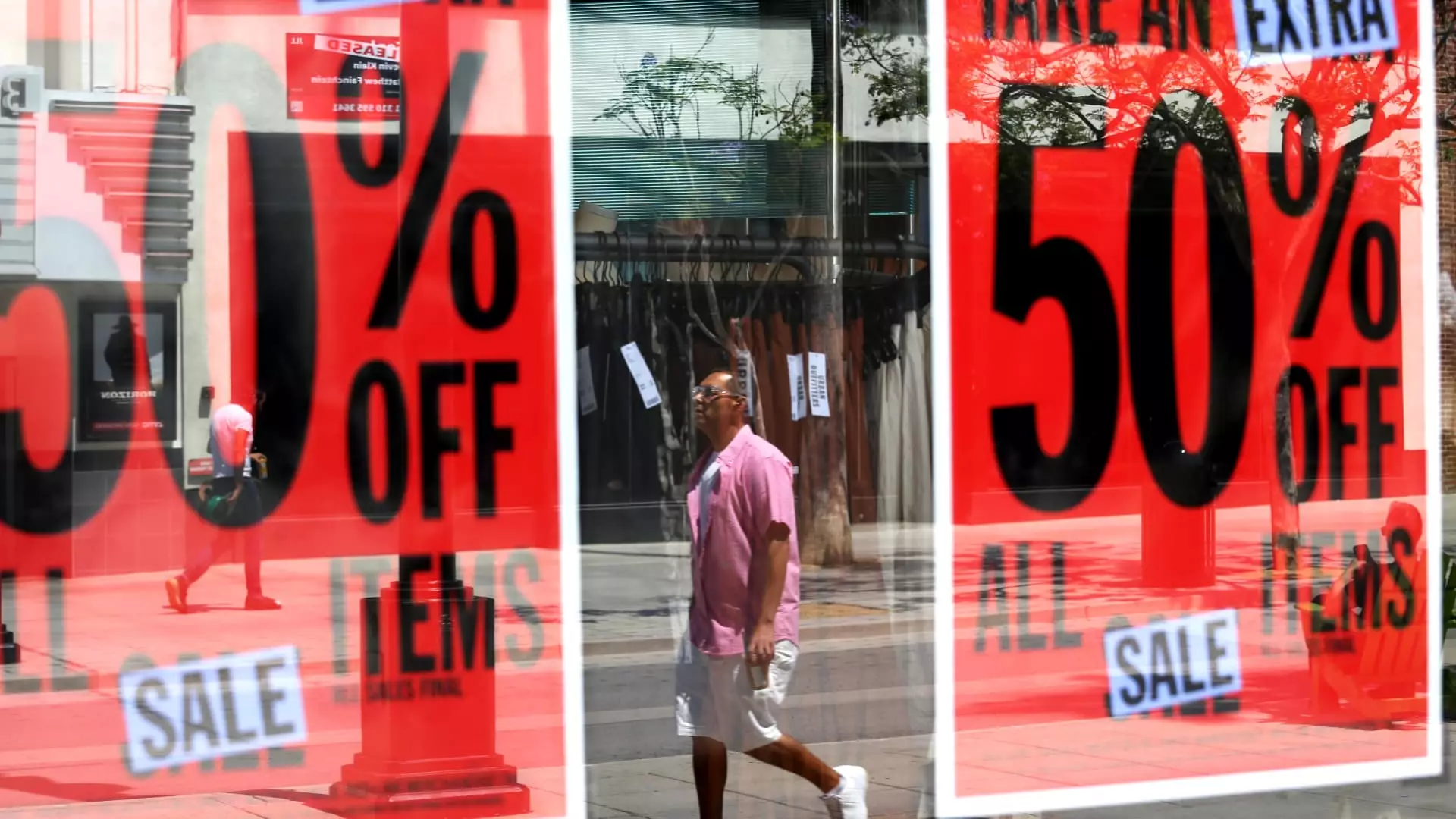In the current economic climate, retailers are grappling with an impending consumer spending slump fueled by the trade policies implemented under the Trump administration. The consequences have reverberated through the marketplace, compelling companies to adjust strategies in an environment rife with uncertainty. Lured by a sense of urgency, many brands have turned tariffs into a marketing tool, enticing consumers with the time-sensitive nature of their promotions. This tactic is not just about sales—it’s a desperate measure taken by retailers to counteract fears of rising costs and impending shortages caused by ongoing trade disputes.
While it’s undeniably clever to use the specter of tariffs as a marketing strategy, the underlying implications are more troubling. The reality is that retailers, especially smaller ones, are in a precarious position. Their operations are often built on thin margins; thus, any fluctuation in costs can lead to catastrophic outcomes. When companies like Bare Necessities advertise “pre-tariff sales,” the notion of urgency becomes a double-edged sword. Yes, they can clear out inventory and boost short-term cash flow, but at what long-term cost? It’s almost like a high-stakes gamble that could ultimately damage brand loyalty if consumers feel they were manipulated into an urgent purchase.
Survival of the Fittest: Competition and Cost
The retail environment has transformed into a battleground, and not every brand can sustain the fight. Larger chains with diverse supply chains, such as Target or Walmart, certainly have the upper hand when it comes to absorbing the shock of tariffs. For boutique brands and smaller enterprises, though, the impact is much more severe. They operate with limited suppliers and options, making them exceptionally vulnerable. The option to source from different global locations is hardly available for these smaller companies, which leads to a concentrated risk that jeopardizes their survival.
What is alarming is how retail strategies are morphing under this stress. As marketing professors and industry experts alert us, smaller brands need cash flow now more than ever. Yet, they risk sacrificing their long-term viability for short-term gains. This churn in the retail operation is symptomatic of a larger issue: businesses are adjusting to an economic environment where they are consistently guessing about futures clouded by policy changes. This dilemma raises important questions about the ethical implications of leveraging consumers’ fears to stimulate sales—how much longer can this precarious balancing act endure?
The Emotional Toll on Consumers: Ignorance Is Not Bliss
Tariff-related anxiety isn’t only a retailer’s concern; it affects consumers directly. Buyers are reconsidering what they purchase and when. Buying before a price hike has become a form of financial self-preservation for some—especially for more significant investments like cars or high-end electronics. Yet, this consumer behavior relies on incomplete information, and the chaotic nature of tariff announcements feeds a cycle of panic purchases that can lead to hasty decisions. This behavior is emblematic of a broader societal trend: when faced with uncertainty, many people choose immediate gratification, showing a profound disconnection between consumer awareness and long-term financial planning.
Brands like Beis have opted for a different approach, acknowledging the social and psychological turmoil that tariffs have introduced. Instead of capitalizing purely on fear, they attempt to maintain transparency, albeit with a dose of humor. This method softens the blow of corporate messaging and enables the company to appear relatable. Yet, humor can only mask the fissures created by a lack of clarity and stability in the economy for so long. While it is amusing, it cannot remedy systemic issues, leaving consumers scratching their heads, unsure of what to expect next.
A Moral Quandary: The Ethics of Retail
Navigating the waters of a politically charged issue like tariffs requires more than just clever marketing strategies; it necessitates ethical consideration. Brands are increasingly opting to sidestep overt political statements, focusing instead on a neutral tone to appeal to a broad consumer base. However, this avoidance may not be sustainable in the long run. Ignoring the autonomy of consumer choice by framing purchase decisions around fear can alienate a segment of buyers who find such tactics disingenuous.
This trend raises a crucial concern: What is the moral responsibility of retailers in this chaotic landscape? Should they uphold transparency, honesty, and a sense of social responsibility, or should they prioritize profits, even if it means sowing confusion among consumers? The answer is not simple, but one that is increasingly pressing as economic and political landscapes continue to evolve.
The road ahead for retailers is fraught with obstacles. It is crucial to recognize the multifaceted battle they face—navigating tariffs, consumer behavior, and ethical considerations. In a world already riddled with uncertainty, the retail environment must decide whether to seize the moment for potential gain or prioritize a more stable, ethical approach for the future.


Leave a Reply